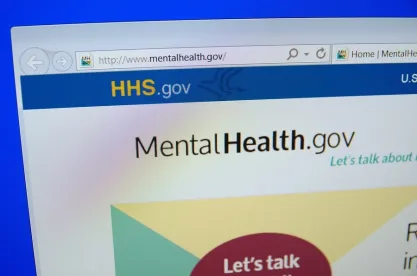As the pandemic rages on, and the United States has seen a spike in coronavirus cases in recent days, many healthcare providers are still struggling to care for patients and remain afloat. In response, HHS is continuing support and extending flexibility.
On October 1, 2020, the Department of Health and Human Services (“HHS”) announced $20 billion in new funding as part of Phase 3 of the General Distribution of the Provider Relief Fund. Phase 3 allows providers who already received Provider Relief Fund payments to apply for additional funding that considers financial losses and changes in operating expenses caused by the coronavirus. It also allows providers who were previously ineligible, such as those who started practicing in 2020 or certain behavioral health providers, to apply for funds as well. The additional $20 billion will be administered by the Health & Resources Services Administration (“HRSA”).
Thus far, HHS has distributed $100 billion from the Provider Relief Fund. However, HHS acknowledged a continued need for support. In particular, HHS noted the increase in mental health issues for Americans amidst the pandemic, with three times as many people reporting anxiety disorder symptoms, and four times as many people reporting depressive disorder symptoms, and therefore a pressing need for behavioral health support. While some Medicare or Medicaid behavioral health providers have already received prior General Distribution payments, others have not. Working with the Substance Abuse and Mental Health Services Administration (SAMHSA), HRSA developed a list of the nation’s behavioral health providers now eligible for funding, which includes, for example, addiction counseling centers, mental health counselors, and psychiatrists.
With the additional $20 billion budget, HRSA will distribute based on an “equitable add-on payment” that considers: (1) a provider’s change in operating revenues from patient care; (2) a provider’s change in operating expenses from patient care, including expenses incurred related to coronavirus; and (3) payments already received through prior Provider Relief Fund payments. All payment recipients will be required to attest to receiving the Phase 3 General Distribution payment and accept the associated Terms and Conditions.
The application period began October 5, 2020, and continues through November 6, 2020. Providers may apply at the Provider Relief Fund site. HHS encourages applying as soon as possible to expedite the calculation and distribution of payments.
In addition to further relief payments, providers are also receiving relief in another arena: Accelerated and Advanced Payment Program (“APP”) repayment. On October 8, 2020, the Centers for Medicare & Medicaid Services (“CMS”) announced new repayment terms for Medicare loans to providers during COVID-19. The APP allows CMS to make advance payments to providers in times of crisis. In the early stages of the public health emergency, CMS expanded eligibility for the APP, and, with the uncertainty of the impact of the coronavirus, many providers took advantage and requested such payments. The result—CMS issued $106 billion in payments to 22,000 Part A providers and 28,000 Part B suppliers. However, as discussed in our April 9, 2020 blog post, providers and suppliers were required to begin repaying these advances within 120 days, by way of claims offset, and repaying any outstanding balance by way of direct payment within 210 days.
However, under the recent Continuing Appropriations Act, 2021 and Other Extensions Act, repayment will now begin one year from the issuance date of each provider or supplier’s accelerated or advance payment. After that first year, CMS will automatically recoup 25% of Medicare payments otherwise owed to the provider or supplier for 11 months. At the end of the 11-month period, recoupment will increase to 50% for another six months. If the provider or supplier is unable to repay the total amount of the advance payment during this time-period (a total of 29 months), CMS will issue letters requiring repayment of any outstanding balance, subject to an interest rate of 4%.
This article is not an unequivocal statement of the law, but instead represents our best interpretation of where things currently stand. This article does not address the potential impacts of the numerous other local, state and federal orders that have been issued in response to the COVID-19 pandemic, but which are not referenced in this article.



 />i
/>i

